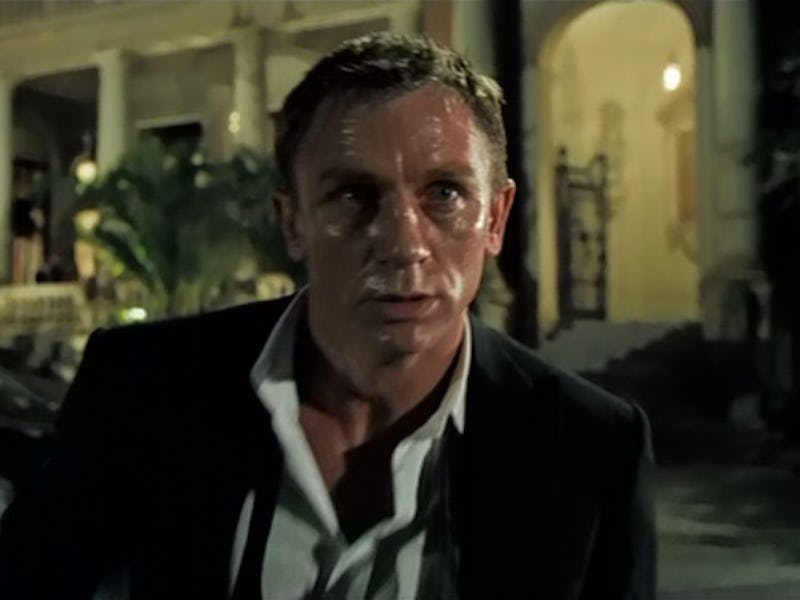It’s been ten years since Daniel Craig’s James Bond guzzled down a poisoned martini in Casino Royale and went into near-cardiac arrest at the hands of the shark-eyed Le Chiffre. Dazzled by his dazed, sweating body and trembling hands as he valiantly stabbed himself with a drug-packed needle, we probably didn’t realize that the backstory about the poison that shook him — digitalis — didn’t really check out. It’s about time we return to the scene of the crime.
Bond is in the middle of an intense poker game when he first feels the effects of the poison. As he abruptly gets up — “Deal me out,” he commands — his usual smoothness begins to stutter, and the camera, mirroring his failing vision, begins to unfocus and swirl. He’s got ventricular tachycardia, his team back at MI6 HQ determines, most likely caused by poisoning with digitalis. However, this particular poison — one of history’s classics — isn’t exactly the best choice for a rapid kill.
Digitalis, which is actually a flowering plant occasionally known as foxglove, takes at least six hours to show its effects, even in large doses. The “poison” is used today as an important cardiac medicine, and when physicians try to assess patients they suspect have digitalis poisoning, they have to be careful of how they interpret the results; as one article published in September in the World Journal of Pharmaceutical and Medical Research notes, “levels determined less than 6-8 hours after an acute ingestion do not necessarily predict toxicity.”
Perhaps Le Chiffre chose this poison in an attempt to appear blase about his murderous scheme. Using a rapid-acting poison like, say, botulinum toxin (Botox) would result in Bond dropping dead at the poker table, and nothing about that says “smooth French criminal.” Instead, Bond got a digitalis martini with a lemon twist and presented the usual effects — nausea, dizziness, confusion, delirium, and the aforementioned ventricular tachycardia, which is when the heart starts beating crazy-fast, starting from the bottom chambers — a lot sooner than a scientist would expect.
Bond’s failed attempt to revive his failing heart with self-imposed electric shock (together with Vesper’s successful one), is also a pretty unusual treatment for digitalis overdose, according to the physician fact-checkers at Polite Dissent, who points out that defibrillation can trigger even worse heartbeat arrhythmias — or even stop the heartbeat altogether. The lidocaine Bond jabs into his neck is normally enough to do the trick. But, of course, since when has “normal” ever been good enough for Bond?
